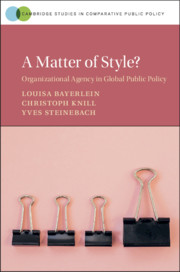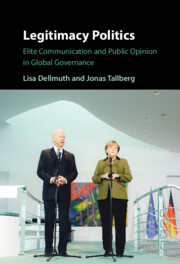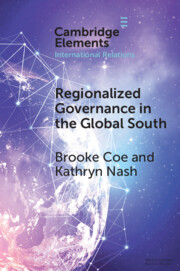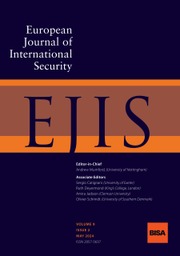A Matter of Style?
International public administrations (IPAs) have become an essential feature of global governance, contributing to what some have described as the 'bureaucratization of world politics'. While we do know that IPAs matter for international politics, we neither know exactly to what extent nor how exactly they matter for international organizations' policy making processes and subsequent outputs. This book provides an innovative perspective on IPAs and their agency in introducing the concept of administrative styles to the study of international organizations and global public policy. It argues that the administrative bodies of international organizations can develop informal working routines that allow them to exert influence beyond their formal autonomy and mandate. The theoretical argument is tested by an encompassing comparative assessment of administrative styles and their determinants across eight IPAs providing rich empirical insight gathered in more than 100 expert interviews.
- Proposes a novel perspective on the study of international organizations and their administrative bodies, appealing to readers who want to extend their knowledge about international organizations and their agency
- Introduces the concept of administrative styles to make sense of global policy-making
- Explores international civil servants' routine behavioural patterns in working towards gaining legitimacy and policy influence
- Draws on rich qualitative data gathered through in-depth interviews with insider civil servants and presents its findings in a systematic and accessible way
Product details
July 2020Hardback
9781108836371
276 pages
235 × 158 × 20 mm
0.52kg
1 b/w illus. 9 tables
Available
Table of Contents
- 1. Introduction – Of Illusory Giants and Dwarfs: Do International Public Administrations Matter for Policy Making Beyond the Nation-State?
- 2. Conceptualizing and Explaining Bureaucratic Influence: Administrative Styles
- 3. Observing and Explaining Administrative Styles: From Concept to Empirical Analysis
- 4. The IMF and the UNHCR: Entrepreneurial Administrations with Different Levels of Formal Autonomy
- 5. The IOM and the FAO as Consolidators: Struggles of the Challenger and the Challenged
- 6. Advocacy at UNEP and the WHO: How Expertise and Common Beliefs Shape an Administrative Style
- 7. NATO and the ILO As Servants: The Dedicated Steward and the Saturated Dinosaur
- 8. Conclusion – Real Dwarfs, Illusory Dwarfs, or Even Giants? International Public Administrations as Actors in Global Governance










